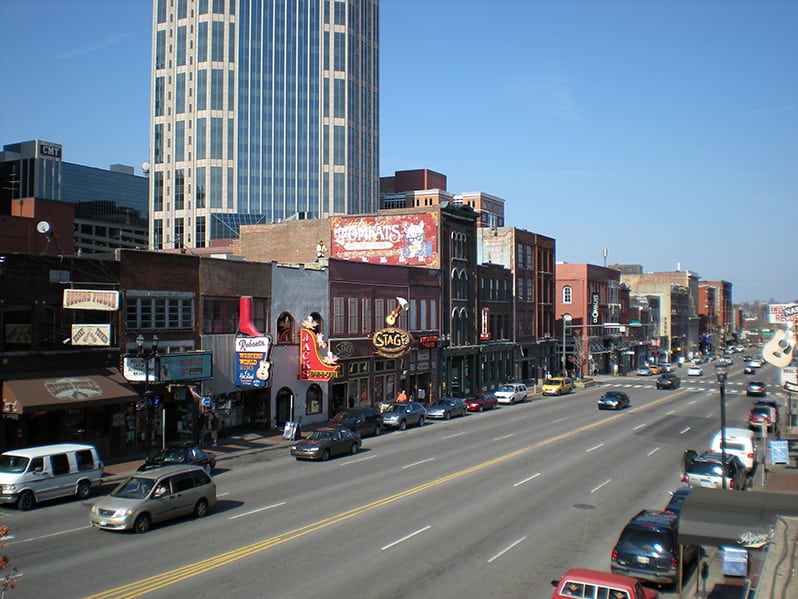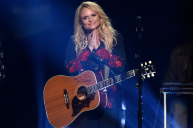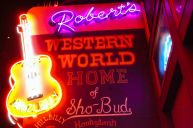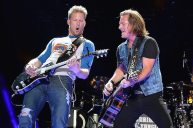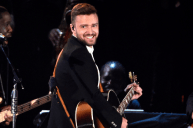Nashville's Lower Broadway is the landmark tourist destination for visitors. While still housing historic music venues like the Ryman Auditorium, the city's exponential growth in recent years has paved the way for a slew of new businesses downtown, namely bars owned by country stars.
Videos by Wide Open Country
Just within the past year, musicians Dierks Bentley, Blake Shelton, Luke Bryan, John Rich and Jason Aldean have opened or announced name-sake locations in downtown Nashville.
Alan Jackson pioneered the trend when he opened AJ's Good Time Bar in 2016. Florida Georgia Line following soon after with FGL House. These honky tonks are designed as destinations for fans. They're multiple levels, feature rooftop bars with views of the skyline, dance floors, artist memorabilia, full kitchens with great food and live music stages. They're usually licensed and operated through big restaurant companies, leaving pure profit and a platform for artists.
These bars provide a great opportunity for revenue so artists don't have to rely on the changing landscape of album sales, streaming and touring so relentlessly, ringing in yearly sales in the millions. It's clever marketing and builds a strong brand. But one aspect seems to be missing -- not one single woman country artist has a bar on Broadway. So why is that?
Nashville's bro country problem begins with radio and transcends into something bigger. When women lose out on airplay, they lose out on bigger opportunities for money and expansion. Every bar on Broadway -- from Ole Red to Redneck Riviera -- are owned by the highest-earning country music artists, according to Forbes. It's cyclical; the fewer times women's music is played on the radio, the fewer No. 1 singles they receive. The fewer No. 1 singles they receive, the fewer headlining tours they book, the fewer fans they reach, the fewer awards they win and the fewer business opportunities they have a chance to cash in on.
Take an artist like Kacey Musgraves for example. Golden Hour is nominated for record of the year at the CMA Awards and she's recently had a showering of critical acclaim, but she still lacks the serious radio play of her contemporaries. Until her upcoming headlining tour this winter, she was an opener on tours for bigger artists like Little Big Town and Harry Styles.
Last year, only 7.5% of country radio Billboard chart hits were made by women. The music played on radio controls the narrative of the genre, and subsequently the culture which follows it.
Read More: From the Kitchen to the Tailgate: Country Music's Struggle to Define Women
All great candidates for their own bars, Dolly Parton has over 50 years of number one hits and a beloved fan base, Miranda Lambert and Carrie Underwood, who recently called out radio programmers' excuses for not playing women, sell out stadiums. But unless the country music industry invests more in women, their careers will suffer. Women make powerful art within the genre and female fans may find their work more relatable to their own experiences.
There's no lack of demand for new bars. As older spaces close, new concepts move in quick and have no trouble generating revenue. If there can be an axe-throwing bar on Broadway, there can surely be one owned by a female country artist. Even with Music City being the most popular spot for bachelorette parties among other tourism, there's still a devastating lack of entertainment curated toward women -- or by women -- on a mainstream level.
Lower Broadway is a mirror to the culture perpetuated by country radio. As long as women are overlooked, they won't get their dues on a bigger level. As Nashville adds bro country bars to the mix abundantly, the city misses out on a corner of a market of diverse ideas and innovative business. There's no excuse as to why there isn't a woman-owned bar on Broadway.
It's not that men shouldn't have bars, it's that a major gap needs to be bridged. These bars are a great opportunity for artists and only contribute to the Nashville economy and tourism industry positively. Women want to see their names on big signs instead of just as sexualized cowgirls on the neon marquees on Broadway. Fans of women country artists deserve a place to go and fiscally support them, buy merch and post on social media, promoting their brand. Music City needs to take a look at the effect of bro country's dominance from the inside out, branch out from Music Row's boys' club and find a path to give women artists better opportunities -- like having their own namesake bars.
